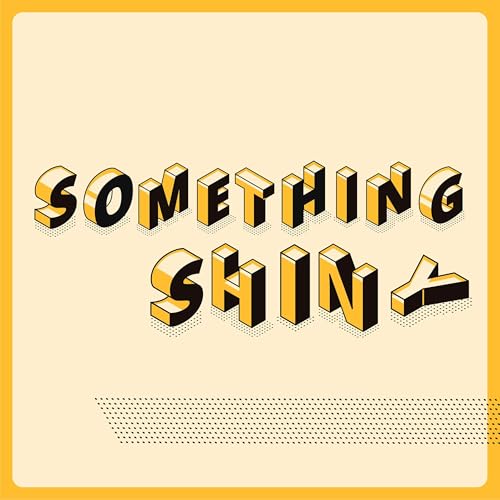-
サマリー
あらすじ・解説
Ep075: Does back to school season hit you hard, too?Why is it so hard and triggering and exhausting to go back to school (even if you’re not a student or have a student in your life right now)? And what is this idea, “pervasive demand avoidance” (or a persistent drive to autonomy) and how can it crop up during massive transition times? David and Isabelle come back from a summer spent working on exciting new Something Shiny resources and describe some of the demands that may be filling up your slots this time of year. Also included: tangential journeys involving the cinematic classic “Legend,” deep cut Disney songs a la Tim Curry, and Isabelle’s allergy medicine hallucination moment.—-David and Isabelle welcome fall and the new school year, complete with the way germs start circulating and sick days shoot up once the school year kicks in, and then histamine levels and allergy medicines. There may be some links between antihistamines and psychiatric symptoms (see link below!). Isabelle describes a hallucination she had when taking a commonly prescribed allergy medicine, referencing the Tom Cruise movie, Legend. This brings up how intense children’s movies were back in the day, where kids were in real mortal danger a lot and awful things happened a lot. David recalls how intense Willy Wonka was, with the kids getting killed and then the tunnel sequence, which leads to Isabelle remembering how she shopped a class in college about children’s literature and it was all about Roald Dahl and how he hated childhood and was bullied and just dealt with a lot of things that made him hate kids. So, returning to Isabelle’s hallucination, she wakes up from a sleep, she sees Tim Curry in Legend demon costume asking if she has anything to eat, and she knows she’s hallucinating, but it was in the room. She hears him working in the kitchen. She then sees a pig walk in with human hands for feet, she wakes up, she is fully awake, the pig fades away, and she walks into the kitchen, and I say “You’re not real, I’m hallucinating” and he says “of course.” Also, it was almost morning, light was in the space, this wasn’t sleep paralysis or lucid dream, she fixed breakfast, called the doctor, and stopped taking this medicine immediately. Of course she told the whole story to the doctor because of course these details would be important. David names how strange the brain is and all the connections are. And this links up to an amazing CD put out by Disney where Tim Curry sings a Davy Crockett song. David was tormented by this song in elementary school, and they would make fun of him by singing this song at him, but why did this bother him actually? Isabelle recalls that back to school season as more triggering than she realized, she would use the relationship with her teacher to accommodate her, to do the hard things and ask for extensions and try and be. The teacher at her kids’ school was not picking up on her big hand gestures and quirk and charm, so two questions: 1) back to school season being triggering? And 2) when there is a vacuum, she becomes a cartoon character, as their previous guest Ren, brought up. Going back to school is so complicated; David notices that when he sees the back to school supplies on sale, it was a “gulp,” it always meant more work for him, the break being over. Now that he is not in school anymore, it has become a bit more of a “haha, I don’t have to do that anymore.” But regardless he wants to point out that neurotypical or neurodivergent alike, this is a time of intense transitions, beginnings and endings, and routine changes, and waking up earlier (for parents and kids and even fellow commuters who suddenly have to notice when school is in session on their traffic routes), it is a hard, hard time. It’s highly activating on a nervous system level, and germ load aside, kids will need down time and fatiguing and the adjustment period. This brings up the idea of cognitive demands on us—hold up ten fingers, and each slot is taken up with a task or a load: “buying school supplies,” “I’m sad my kid and I won’t have the same together,” and “I gotta change my morning routine” — in the face of so many demands, things become a can’t, not a won’t. In the face of so many demands, I actually can’t do any more, even a pleasant thing, everything is one ask too many or one step too much. And some people don't have ten slots, they have two—for example, a kid being ushered into a transition, even like three requests of a parent is actually too many demands, and they respond with “I don’t wanna” but also what’s in there is they cannot. They can do more, but with help. They’re going to get crispy and ragey, you become oppositional, pick fights, it looks like a sensory overload, or a shutdown, I am going to avoid anything that I perceive as a demand. David not sure how he feels about this diagnostic label because when we’re ...



